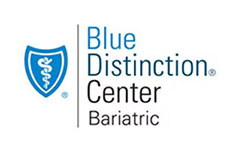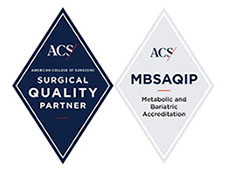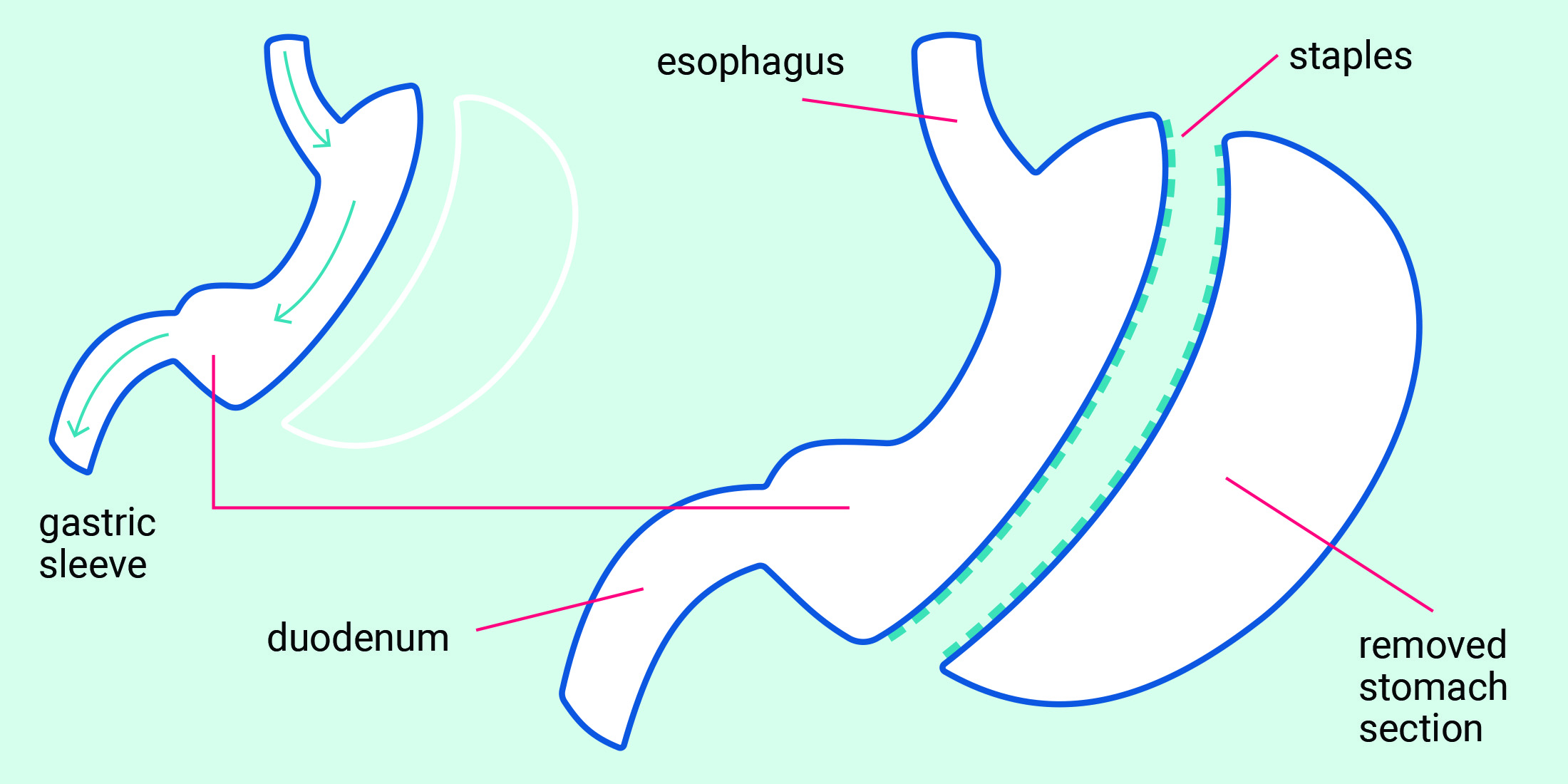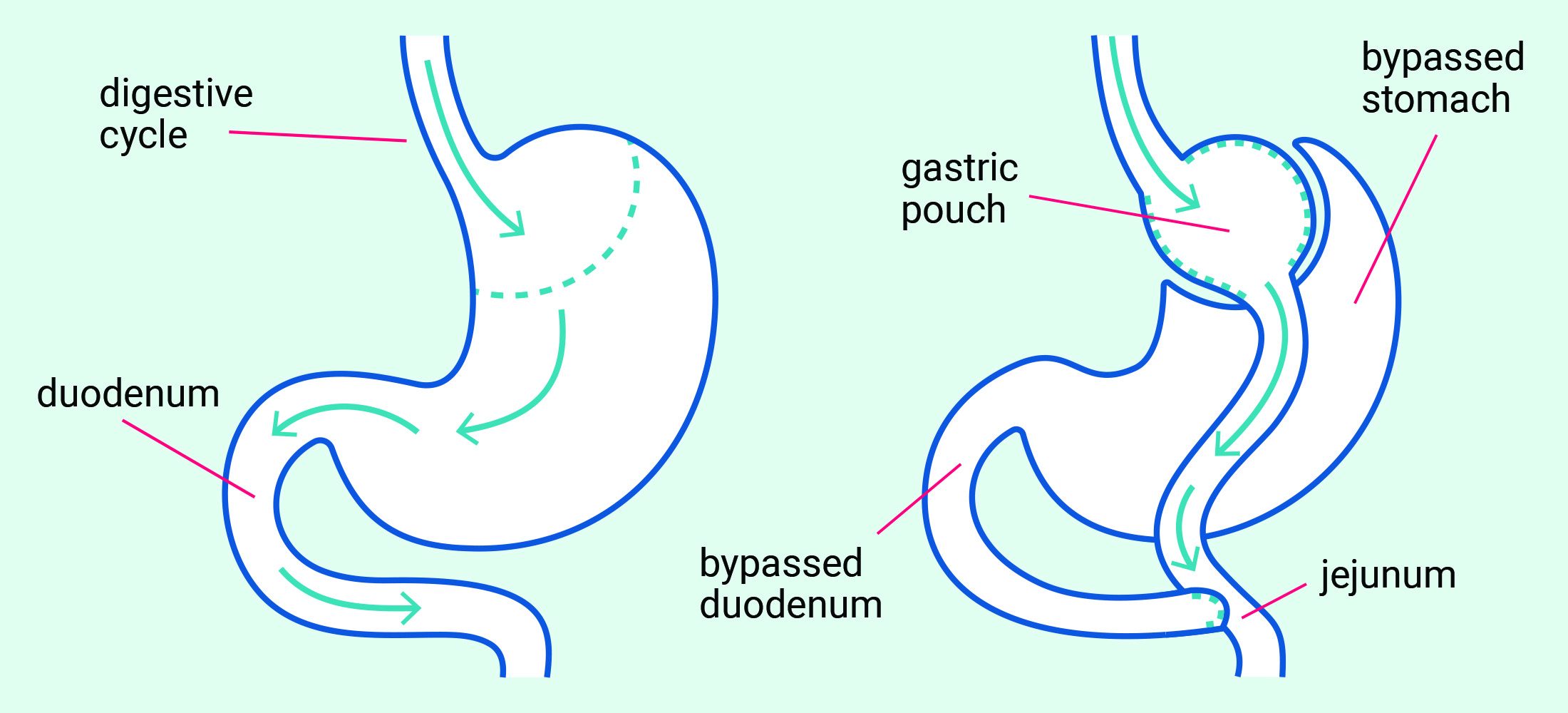At Massachusetts General Hospital, our Weight Center surgeons are part of a multidisciplinary team of obesity experts who are leading the way in personalized care. We offer advanced medical and surgical treatments for obesity, using the latest research and technology to help patients achieve lasting weight loss and better health.
Mass General surgeons perform a high volume of weight loss surgeries and achieve excellent outcomes. Each surgeon is a board-certified, Harvard Medical School-affiliated and specializes in treating patients with complex obesity-related disorders, including metabolic disease and weight disorders.
 Mass General is a designated Blue Distinction Center for Bariatric Surgery from Blue Cross Blue Shield of Massachusetts. This designation reflects our expertise in providing high-quality, specialized weight loss care.
Mass General is a designated Blue Distinction Center for Bariatric Surgery from Blue Cross Blue Shield of Massachusetts. This designation reflects our expertise in providing high-quality, specialized weight loss care.
Mass General Weight Center is a participating program in the Metabolic and Bariatric Surgery Accreditation and Quality Improvement Program (MBSAQIP) and has earned the distinction of a MBSAQIP comprehensive center with adolescent qualifications. MBSAQIP is a nationwide surgical quality program aimed at ensuring the safe and effective performance of metabolic and bariatric surgery.

Surgical outcomes focus on weight loss and the treatment of obesity-related diseases, like diabetes, sleep apnea, and others. Research shows accredited centers experience lower complications, and better outcomes than that of non-accredited facilities. Additionally as a Surgical Quality Partner this further ensures the MGH Weight Center is dedicated to high-quality care, continuous self-improvement, and has been accredited by the American College of Surgeons.
What Is Metabolic and Bariatric Surgery?
Metabolic and bariatric surgery, also called weight loss surgery, refers to several types of surgeries that treat obesity and related metabolic diseases. Metabolic and bariatric surgery is often recommended when non-surgical weight loss methods have not been effective or when obesity poses serious risks.
Metabolic and bariatric surgery procedures modify the stomach to reduce portion sizes and adjust how the body absorbs food, helping patients feel full faster and achieve a healthy weight. Weight loss surgery is used along with long-term lifestyle changes to maintain weight loss.
Many weight loss surgeries are now performed using minimally invasive techniques such as laparoscopic and robotic surgery. These methods use smaller incisions leading to less pain, fewer complications, and a faster recovery.
Becoming a Patient at the Mass General Weight Center
Your weight loss journey starts with an online webinar where you’ll learn about the surgical and non-surgical weight loss options available.
If you’re interested in surgery, ask your primary care or referring provider to submit a referral to the Mass General Weight Center. Once we receive your referral, our team will invite you to a virtual group session to review the specific surgical options we offer.
Who Qualifies for Weight Loss Surgery?
To be eligible for weight loss surgery, most patients must meet one of the following indications:
- BMI greater than or equal to 40
- BMI of 35-40 with a weight-related medical condition, such as type II diabetes, high blood pressure, high cholesterol, sleep apnea
Insurance coverage for weight loss surgery varies by plan and may have different eligibility requirements. Please check with your provider for details.
Our Weight Loss Surgical Procedures
Sleeve gastrectomy
Sleeve gastrectomy (gastric sleeve) is the most commonly performed metabolic and bariatric surgery in the U.S. During the sleeve gastrectomy, the surgeon removes most of the stomach, creating a new banana-shaped pouch from the remaining stomach.
This procedure helps with weight loss by:
- Reducing hunger – It lowers ghrelin production, the hormone responsible for hunger.
- Increasing fullness – The smaller stomach processes food more quickly, helping you feel full faster.
Patients who have a sleeve gastrectomy often experience the following benefits:
- 50% to 60% loss of excess body weight
- Improved weight-related conditions such as type 2 diabetes and hypertension
- Increaseed life expectancy
- Fewer intestinal complications compared to other weight loss procedures
How is sleeve gastrectomy performed?

Sleeve gastrectomy is a non-reversible, minimally invasive procedure using laparoscopic or robotic surgery. During the procedure:
- You’ll receive general anesthesia so you don’t feel anything during the procedure.
- Your surgeon will make four to five small incisions in your abdomen to insert surgical instruments.
- Using these instruments, the surgeon will remove most of your stomach, creating a new banana-shaped pouch from your remaining stomach.
The procedure typically takes 60 to 90 minutes. Most patients stay in the hospital overnight and return home the next morning. Home Hospital also might be any option for you.
Gastric Bypass (Roux-en-Y Gastric Bypass, or RYGB)
In a RYGB procedure, your surgeon creates a “shortcut” from your stomach to your small intestine. This involves separating the upper part of the stomach from the lower part and connecting the upper part directly to the small intestine.
Roux-en-Y gastric bypass surgery can help you achieve the following benefits:
- Average loss of 65 to 75% of excess body weight
- Reduced hunger and increased fullness
- Improvement in conditions such as type 2 diabetes, gastroesophageal reflux disease (GERD) and hypertension
- Increased life expectancy
How is Roux-en-Y gastric bypass performed?

RYGB promotes weight loss by changing how your stomach and small intestine process food. The surgery has two steps:
- Creating a smaller stomach pouch—Your surgeon forms a small upper section (about the size of a golf ball) while leaving the lower portion of the stomach in place. The upper pouch is where food will go after surgery.
- Bypassing a part of the your small intestine—The surgeon connects a section of the small intestine to the new pouch, allowing food to bypass the upper part of the intestine. This reduces calorie absorption and lowers hunger hormone (ghrelin) production, helping you feel full faster.
At Mass General, Roux-en-Y gastric bypass surgery is usually performed minimally invasively using laparoscopic or robotic techniques. During the procedure:
- You’ll receive general anesthesia so you don’t feel anything during the procedure.
- Your surgeon will make four to five small incisions in your abdomen to insert surgical instruments.
The procedure typically takes 3 to 3.5 hours. Most patients stay in the hospital overnight and return home the next morning.
Conversion and Revisional Surgery
Bariatric conversion surgery or revisional surgery may be an option for patients experiencing complications or weight regain after a previous weight loss surgery.
If you’ve had bariatric surgery but are not seeing the expected results or are experiencing complications, your doctor may recommend conversion or revisional surgery.
- Conversion surgery — Changing one type of weight loss surgery into another (e.g., sleeve gastrectomy to gastric bypass).
- Revision surgery — Correcting a previous surgery to reduce complications and improve discomfort.
Conversion and revisional surgery may be necessary for:
- Patients who have not lost enough weight after a previous bariatric surgery.
- Patients with surgery-related complications from a previous weight loss surgery, such as ulcers, vomiting, and acid reflux.
- Patients with severe malnutrition after surgery.
If you are looking for a revision of your sleeve gastrectomy, please reach out to our surgical program for possible options.
How is conversion and revisional surgery performed?
Your conversion or revisional surgery will depend on the weight loss surgery you had before and what you are being treated for. Your surgeon will discuss the details of your surgery during your consultation.
For all procedures, you will first be placed under general anesthesia, so you don’t feel anything during the surgery. Most conversion and revision surgeries at Mass General are performed with minimally invasive methods, which can help reduce pain, bleeding, and other complications after surgery.
How safe is conversion and revisional surgery?
Conversion and revision surgeries have higher risks than the first weight loss surgery you received. This is because conversional and revisional bariatric surgeries try to correct an already-existing complication with another surgery. Generally, surgeries that try to correct inadequate weight loss have lower risk for complications, while surgeries that try to correct too much weight loss have higher risk.
Your experienced Mass General surgeon will create a surgical plan that seeks to minimize your risk for complications. While no surgery is totally risk-free, the expertise of Mass General bariatric surgeons who have done conversion and revision surgeries many times before can help lower your risk of developing complications.
Conditions Treated by Weight Loss Surgery
In addition to sustained weight loss, bariatric surgery can improve or even resolve many weight-related health conditions, including but not limited to, high cholesterol, high blood pressure, high blood sugar, type 2 diabetes, heart disease, kidney disease, liver disease, and sleep apnea.
What to Expect for Weight Loss Surgery
Your journey begins with a virtual webinar to learn more about our Weight Center and the surgical options we offer. If you decide that surgery is the right choice for you, the next step is meeting with our care team. Your first visits will include:
- Meeting with a registered dietitian and psychologist to discuss your lifestyle, nutrition, and mental preparedness for surgery.
- Meeting with the surgical team to evaluate your overall health and determine if you’re a good candidate for metabolic and bariatric surgery.
Together, we will help you prepare for surgery and what to expect after surgery. Some insurance plans may require additional visits with our care team before approving the procedure.
Your team will ask you to:
- Follow a special pre-surgery diet
- Avoid or add certain foods or drinks
- Avoid alcohol, tobacco, or other substances
- Adjust or stop certain medications
- Arrange for a ride home after your procedure
- Maintain physical activity
Specific preparation instructions vary by patient. Please answer all your care team’s questions so they can create the best preparation and recovery plan for you.
Before Weight Loss Surgery
Our program is designed to provide you with the information you will need for successful weight loss and to reduce the risk of complications after surgery.
Many insurance companies and our Weight Center team require you to attend a pre-surgery program that helps you prepare for surgery both physically and psychologically. Program education focuses on achieving pre-surgery weight loss to reduce surgical risks and learning essential nutrition and lifestyle changes for long-term success.
As surgery approaches, you will:
- Meet with your care team to review your health.
- Attend a group nutrition class to learn about your pre- and post surgery diet and lifestyle changes for the two weeks following surgery.
- Have additional visits with your surgical team to prepare you for surgery and answer final questions.
After Weight Loss Surgery
At the Mass General Weight Center, your care team develops an individualized plan to support you after weight loss surgery. Follow-up care includes regular visits with your surgical team, registered dietitian, and psychologist for the first 18 months. They will monitor your nutrition and eating habits, addressing any vitamin or mineral deficiencies.
After 18 months, you can continue annual follow-ups with us or transition to your primary care provider if you're meeting your weight loss goals.
A Multidisciplinary Team Approach to Care
At the Mass General Weight Center, we take a comprehensive, team-based approach to weight loss surgery. Before and after your procedure, we work with your care team to design an individualized treatment plan focused on long-term weight loss. Our experts provide nutritional counseling, physical activity guidance, and behavior modification support along with medical management of related diseases.
We also offer pediatric evaluation and treatments for obesity in collaboration with Mass General for Children.
Patient Story
Kim's Successful Weight Loss Surgery
Read Kim's weight loss surgery story



 Mass General is a designated Blue Distinction Center for Bariatric Surgery from Blue Cross Blue Shield of Massachusetts. This designation reflects our expertise in providing high-quality, specialized weight loss care.
Mass General is a designated Blue Distinction Center for Bariatric Surgery from Blue Cross Blue Shield of Massachusetts. This designation reflects our expertise in providing high-quality, specialized weight loss care.









